
Go deep
Underground attractions boast a sense of intrigue unlike almost anything you're likely to see at street level. Many of these sites feature relics of the past, from speakeasy couches to stacks of human skulls.
Photo: eisriesenwelt.at
Want to enjoy the eerie vibe that comes from the world's most interesting underground attractions? Check out our favourites, including those in Rome, London, Austria (pictured here) and even Seattle. (Text: Josh Lew)
Related Link: 9 wondrous water caves
1. Cu Chi tunnels, Vietnam
One of Vietnam's most interesting war-era attractions is found near the town of Cu Chi, about 40 miles outside of central Ho Chi Minh City. A network of tunnels used by Viet Cong forces until 1975 are now open for tours. Visitors can enter a small portion of the original complex, which, at the peak of the Vietnam War, included tunnels that together measured about 120 miles in length. The passageways were only 2 to 3 feet in diameter, but there were also underground barracks, command centres, and even mess halls and hospital operating rooms. Today, visitors can crawl through sections of the original tunnel (some of which have been widened slightly to accommodate more tourists).
Related Link: 8 places for budget travellers: Vietnam [Photos]
2. London Underground
Photo: az1172/Flickr
One of the best ways to get in touch with both London's past and present is to tour its famous Underground. The modern Underground, called the Tube by locals, is one of the best subway networks in the world. Down in the Underground, more than a century-and-a-half of history comes into view. Many Tube tours start where the first underground train set out from its station in 1863. Most tours also follow the development of the Tube system in the later part of the 19th century (when many of the tunnels were dug by hand). Tour-goers will also get to see stations that were used as bomb shelters during World War II. People who are more interested in seeing the secret side of the Underground should keep their eyes out for planned tours of so-called “ghost stations.”
Related Link: London Zoo lets you put your cat on the map
3. Eisriesenwelt, Austria
Photo: eisriesenwelt.at
Eisriesenwelt, an expansive natural cavern outside of Salzburg, Austria, is much more than a standard cave destination. Known as the world's largest ice cave, Eisriesenwelt features amazing rock and ice formations. The subterranean landscapes include stunning frozen waterfalls, semi-translucent pillars of ice. The cave - at least the small portion that tour groups are allowed to enter - has a whimsical feel that makes enduring the below-freezing temps (even during the summertime) worthwhile. Tour season is from May through late October. The ice formations make this arguably the most visually stunning tourist cave in the world. Eisriesenwelt is certainly the best natural underground attraction on our list.
Related Link: 7 wellness getaways: Thermal spas in Austria
4. Rynek Underground Museum, Poland
Photo: PolandMFA/Flickr
The Rynek Underground Museum sits about 15 feet below the surface of the Main Market Square (Rynek Główny) in Krakow, Poland. This is an ancient area, with a history dating back more than 1,000 years. This long (and colourful) past is still evident in the ground just beneath the marketplace. A recent archaeological project uncovered artefacts dating back to the 11th century. A thousand-year-old cemetery, the remains of wooden huts from medieval times, and a variety of other intriguing remnants of the past have been unearthed. The excavation area was recently converted into an underground museum with exhibit spaces. History buffs and casual curiosity seekers alike will appreciate the chance to see some of the archaeological finds in the exact places where they were originally uncovered. Some of the high-tech, plasma-screen displays may make this seem like a less-authentic, less-mysterious underground attraction. However, the artefacts themselves, including a well-preserved cobblestone road and wooden huts, really make Rynek a worthwhile subterranean destination.
Related Link: 9 scary images of shelf clouds: Warsaw, Poland
5. Seattle Underground
Photo: zetrules/Flickr
Once a thriving street-level neighbourhood, the places that make up the Seattle Underground were covered by elevated buildings after a major fire sparked redevelopment in the late 19th century. As the city grew up around it, the Underground eventually became home to hidden flophouses, illegal gambling and opium dens, and prohibition-era speakeasies. A local entrepreneur first started offering tours of these abandoned places more than 50 years ago.
Related Link: Olympic National Park: A user's guide
6. Tunnels and cellars of Vienna
Photo: St. Michael's Church
Many people come to Vienna to soak in the classical architecture and history. However, Vienna's underground crypts, sewers, tunnels and cellars offer a different type of Austrian experience. The crypts of St. Michael's Church (shown here) and the cellars, sewers and passageways under the adjacent Michaelerplatz are worth a look because of their atmosphere and the role that they played in Vienna’s past. The famous Orson Welles movie "The Third Man" was filmed in tunnels and drainage sewers just like the ones that tourists are led through today. Some underground tours also visit Baroque-era wine cellars (complete with bottles) and even some sites that have been excavated in search of Roman ruins and relics.
Related Link: Innsbruck, Austria: What to see, where to stay
7. Rome's catacombs
The most famous (and perhaps the most impressive) catacombs in the world are found in and around Rome. Many tours of the catacombs of Rome trace the city's colourful and sometimes-violent history from medieval times back to the first year of the Common Era. These are the catacombs of lore, with their stacked skulls and human bones laid out in unusual patterns. Tours from companies like Dark Rome offer stops in multiple catacombs including some of the most famous, including San Sebastian and the Capuchin Crypt. Roman tour companies also visit archaeological sites like the Basilica of San Clemente, where ancient worship spaces and Roman ruins were discovered in layers below the tiles of the church.
Related Link: Rome: What to see, where to stay
8. Istanbul cistern
Photo: OzMark17/Flickr
Constructed in the sixth century (on the location of a smaller cistern that was even older), the Byzantine Cistern in Istanbul, Turkey, is one of the most visually stunning underground attractions on our list. The experience of seeing this historic place is enhanced by the use of spotlights, which illuminate the cistern's trademark pillars and create reflections in the water that still flows into this ancient structure. The cistern is open daily, and there are special events, such as classical music concerts, that take place here.
Related Link: 10 food tours to expand your mind
9. Coober Pedy, Australia
Photo: luke.fabish/Flickr
This mining town in Australia's Outback is considered the opal capital of the world. The first stop for those interested in subterranean wonders is a tour of an opal mine, but mines are only one type of underground attraction in Coober Pedy. The harsh desert weather makes living underground the best option for people who work in the mining industry. In addition to homes, there are subterranean churches (shown here), restaurants, bars and hotels all around Coober Pedy. Visitors can stay in a hostel that was once used by miners who would dig for opals right outside their rooms. You won't find thousands of years of human history in this Australian town, but you will find a thriving community of people for whom living below the surface is a way of life.
Related Link: World's best long-haul train journeys
10. Subterranean Naples
Photo: Catacombe de Napoli
Naples may not be the first city on a tourist's Italian itinerary, but for people seeking underground adventure, it's a worthy stop. The draw is the sheer number of different underground tour options in various parts of the city. A tour through ancient Roman aqueducts and cisterns is one choice, while another tour visits a series of caverns and tunnels that were used over the centuries as storage spaces, hiding places, bomb shelters and underground churches. The large Fontanelle Underground Cemetery and number of ancient crypts can also be found under the city. It is also possible to head below street level to explore the more recent relics of the history of Naples, such as the bunkers and air raid shelters used during World War II.
Related Link: The best big cities for pedestrians: Florence, Italy
Related Posts:
1. 6 Surprisingly Comfortable Cave Homes
2. Stranger Than Science Fiction: 11 Places That You Won't Believe Actually Exist
3. 10 Spectacular Underground Homes Around The World
4. 8 of the Coolest Secret Subway Stations in the World
5. 9 Odd Towns and Villages
6. 7 Incredible Futuristic Looking Subway Stations
1. 6 Surprisingly Comfortable Cave Homes
2. Stranger Than Science Fiction: 11 Places That You Won't Believe Actually Exist
3. 10 Spectacular Underground Homes Around The World
4. 8 of the Coolest Secret Subway Stations in the World
5. 9 Odd Towns and Villages
6. 7 Incredible Futuristic Looking Subway Stations

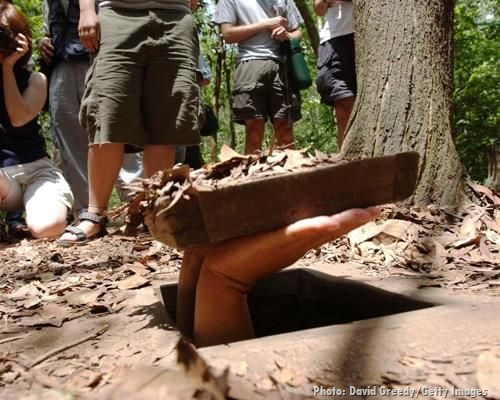

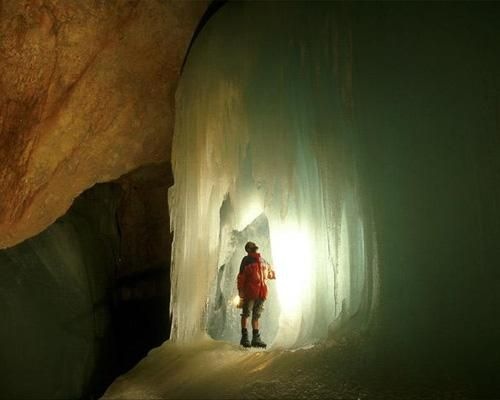

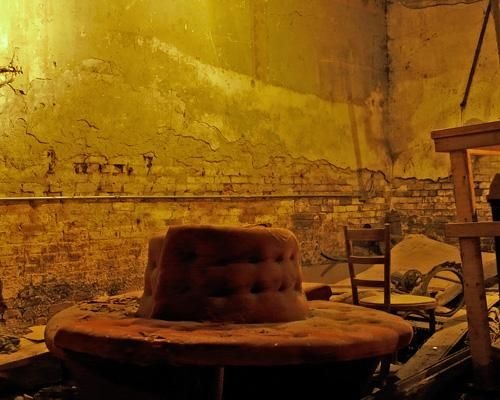
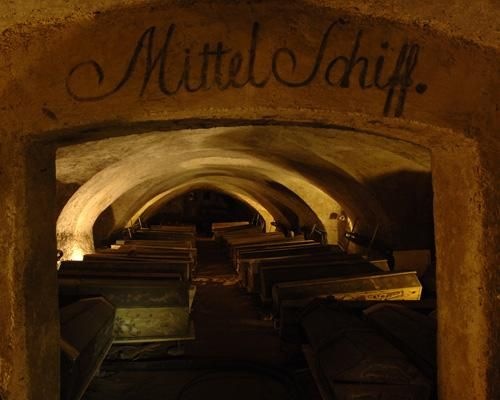

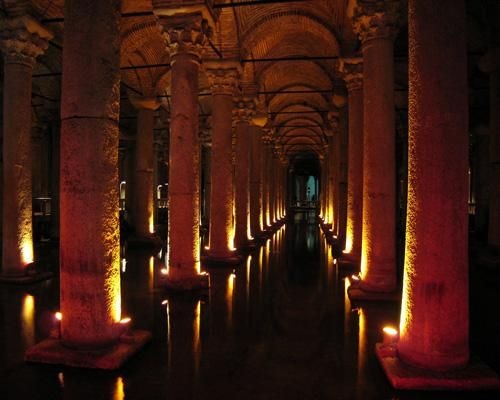
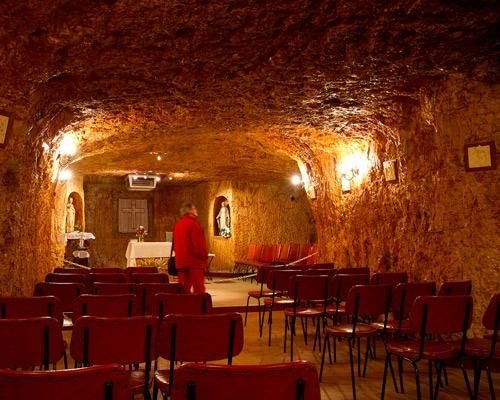
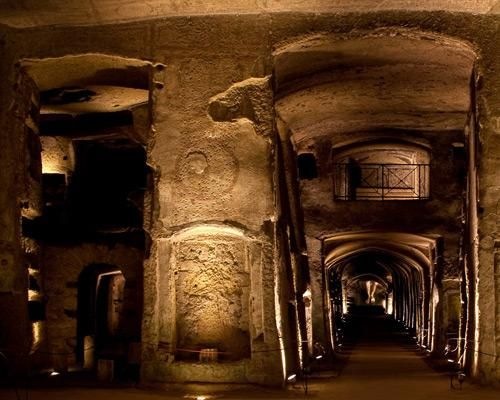
Unbelievable! I must say that all the photos you have shared really relates to the mysterious and historical places. I will also try to visit some of these place and hope to have a memorable tour of them.
ReplyDelete